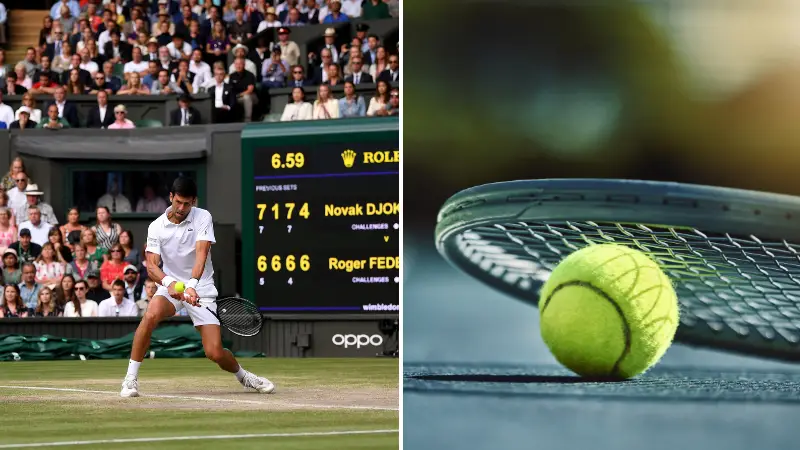
Tennis fans are only just realising why the terms 'love' and 'deuce' are used for scoring in games.
Tennis is believed to have its origins in 12th century France, when monks would strike the ball with the palms of their hands rather than rackets.
It's fair to say that an awful lot has changed about the game since then, although there are still plenty of aspects of the game that link back to its routes.
With the French Open starting this week, tennis fans are gearing up to watch the premier clay court championship in the world.
Advert
A question plenty of fans have at every major tennis tournament is why are the terms 'love' and 'deuce' used?
'Love' is the word used instead of zero or nil when a player hasn't scored a point.
The term came about due to the resemblance of the figure zero to an egg. In sport, it's common to refer to a nil score as a duck or goose egg, and the French words for egg is 'l'oeuf', which sounds similar to 'love'.
Another theory is that in Dutch and Flemish, the word 'lof' means honour. In sport, anyone struggling to score is still playing for honour.
The term 'deuce' also has French origins.
A deuce score is when the game is tied at 40-40, meaning a player need to score two clear points to win the game.
The game goes to deuce, meaning player must first score to gain advantage in the game, then score the next point to win.
'Deuce' comes from the French phrase 'deux de jeux', meaning two games.
In the 18th century, deuce could also mean bad luck or the devil. It could be interpreted that going to deuce is bad luck, although it would be a bit extreme to suggest it's the work of the devil.
Topics: Tennis, Novak Djokovic, Andy Murray, Roger Federer, Rafael Nadal